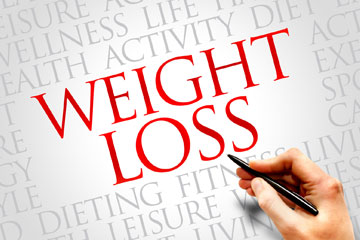
People gain weight due to many reasons, the most common one being eating more calories than their body needs. Some people eat whatever they want and they don’t put on weight while other gain weight no matter how little they eat. Weight gain depends on your calorie intake, how many calories you store, and how many you burn up. The fact is that each of these factors depend on your genes, your environment and your lifestyle. The balance of calorie intake and how many you burn depends on your genetic makeup, level of physical activity, and the calories burn while you rest.
The best way to meet your weight loss goals is to keep track of everything you put in your mouth. Along with that, follow these tips:
- Reduce carbs intake: Reducing sugars, starches, and carbohydrates is an important part of the weight loss process. When you cut these, your hunger level decreases, which leads to less eating. Now your body burns stored fat for energy instead of carbs for energy. Cutting carbs also lower your insulin levels and cause kidney to shed excess sodium and water. It will reduce unnecessary water weight and bloating. Cutting carb intake can reduce body weight and water weight by reducing hunger and lead to quick and easy weight loss.
- Don’t skip meals: When you are hungry your body knows that and will crave for the foods that are high in energy density. This will go against all your dieting plans, so pay attention to hunger and don’t let your body think that you are starving it.
- Drink water before meals: According to a study, drinking a half-liter (17 ounces) of water half an hour before meals helped dieters eat less calories. It helps them reduce 44% more weight compared to those who didn’t drink water. Drinking water before meals will boost your metabolism by 24-30% in an interval of 1 to 1.5 hours, helping you burn a few more calories.
- Have barley for breakfast: Researchers have found that barley has a reputation for fighting hunger, and having it or rye kernel for breakfast kept blood sugar on a base level. These are low glycemic index (GI) foods, which means they raise blood sugar levels slower compared to other carbohydrate foods.
- Drink green tea: Green tea contains small amounts of caffeine and loaded with powerful antioxidants called catechins. It is believed that they work with caffeine to improve the fat burning process. Studies also show that green tea either as a beverage or a green tea extract supplement will promote weight loss.
- Use portion-controlled dishes: Another way to eat less is to use smaller plates, bowls, and cups to reduce the amount of food you take. While using smaller plates, fill them up – this will keep you from feeling deprived. A study related to this shows that people who used a 9-inch plate vs. a 10 to 12 inch plate ate up to 22% less.
- Beef up your lunch salad: Having a vegetable salad is good but it will make you starve by mid-afternoon. A salad is a great choice and if you add some protein and a little fat it can keep you full longer, says Joan Salge Blake, RD, professor of nutrition at Boston University. So, balance your plate with a 3oz piece of chicken breast and add about two tablespoons of light salad dressing. This will make you feel full for longer without affecting your diet plan.
- Keep healthy food around: Keep healthy foods handy and reach for them when hunger strikes. Whole fruit, baby carrots, yogurt, and nuts make great snacks. They will calm your hunger and prevent you from eating unhealthy food.
- Eat fiber-rich foods: Foods with fiber content keep gut bacteria healthy, reduce appetite and promotes overall fat loss. Studies shows that eating 30 grams of fiber every day can help lose your weight, lower blood pressure, and improve your body’s response to insulin – similar to a more complicated diet.
- Do aerobic exercises: Aerobic exercise can help burn calories, and enhance physical and mental health. It is particularly effective for losing belly fat – the unhealthy fat that surrounds your organs and cause metabolic diseases.
Weight gain is largely a result of eating behavior and lifestyle. You can successfully achieve your goals with some willpower, dedication, and perseverance. Follow the above-listed strategies and avoid a sedentary lifestyle and unhealthy food.